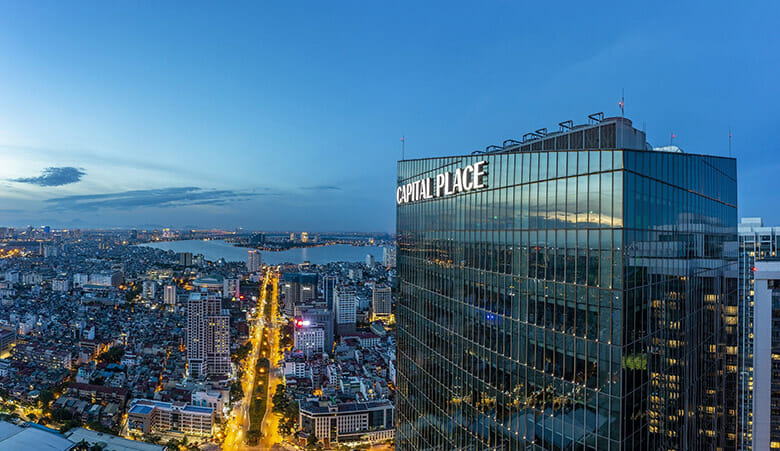
A CapitaLand fund sold Capital Place in Hanoi during January
CapitaLand Investment Ltd reported on Thursday that its first quarter income rose 16 percent to S$598 million ($428.5 million), carried mostly by its real estate investment business which saw an upswing in earnings despite the pandemic.
“Most of our markets have begun to normalise international travel lanes, and operating conditions have improved as concerns over the COVID-19 virus recede,” Singapore’s largest real estate company said in an announcement to the local stock exchange.
Despite this broader stabilisation, the Singapore-listed giant is wary of the situation in China, where a resurgence of COVID-19 has led to strict government-imposed lockdowns in key cities, as well as of the ongoing conflict between Russia and Ukraine. Next to Singapore, China is CapitaLand’s second largest core market, where a third of its real estate assets are located which total S$38.7 billion ($27.7 billion).
“Amidst these global uncertainties, we expect CLI to remain resilient. The Group manages a diversified and well-balanced business that is spread across geographies and asset classes, enabling our thee,” CapitaLand said further.
Investment Management Income Rises
The company’s first quarter earnings saw its real estate investment revenue grow by 28 percent to S$403 million ($288.8 million), with the total asset value of its global real estate portfolio also growing by 3 percent.

CapitaLand CEO Lee Chee Koon and his team are focused on fund management
CapitaLand was also active in trading buildings from both public and private funds under its management during the first quarter, selling off major properties on its way to concluding approximately S$3.5 billion in transactions so far this year, including S$1.6 billion in divestments.
Earlier in January, a fund managed by CapitaLand sold a 100,000 square metre office project in western Hanoi for $550 million to Viva Land, which was just over a year after officially opening the 50-50 joint venture project with Mitsubishi Estate Asia.
In the same month, one of its business units, CapitaLand Integrated Commercial Trust agreed to sell a mall in western Singapore’s Jurong Lake District to CapitaLand for S$340 million ($253 million).
Lodging Lives Again
In its lodging management segment, which includes its traditional Ascott serviced residence division, as well as more recent ventures into mainstream rental housing and student accommodation, CapitaLand said it is set to meet its 160,000 units under management target by next year, with 3,700 new units signed and more than 2,200 units opened during the three-month period.
CapitaLand also touted the strong occupancy rate of its Lyf under its Ascott subsidiary, which currently has 17 co-living properties with over 3,200 units in 14 cities and 9 countries including Singapore, China, Japan, Thailand and Australia opened to date.
With travel beginning to open up in many locations around the region, the group saw its revenue per average room (REVPAR) rise 34 percent compared to the same period last year, to reach S$71, compared to S$53 on Q1 2021.
Despite that resurgence, average occupancy in CapitaLand’s lodging portfolio stood at 57 percent during the first quarter, which was up from 48 percent during the initial three months of 2021.
Leave a Reply